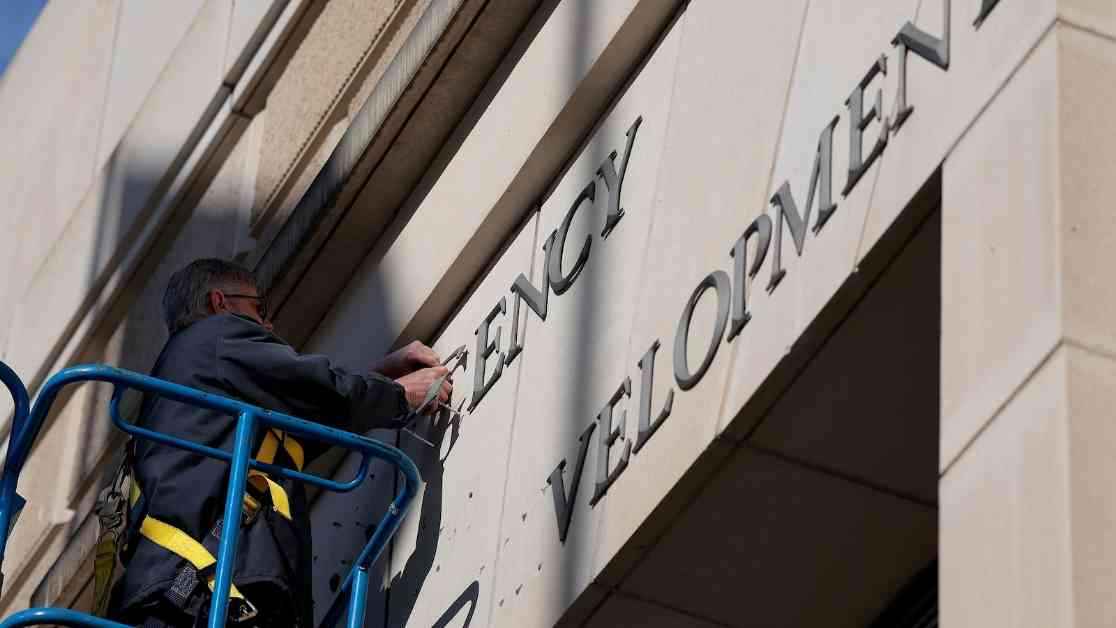Amidst the global backdrop of uncertainty and turmoil, the landscape of international aid and humanitarian efforts has been significantly disrupted. Despite verbal assurances from Secretary of State Marco Rubio regarding the continuation of lifesaving assistance, the reality on the ground tells a different story. Multiple leaders in the humanitarian aid sector have raised concerns about the near-complete halt of international aid and development work funded by the U.S. government, leaving many programs in limbo and risking the loss of critical resources designated for the world’s most vulnerable populations.
As the situation unfolds, the challenges faced by organizations involved in global aid efforts are becoming increasingly apparent. The State Department’s promise of “waivers” to allow select aid programs to continue providing essential assistance, such as food, water, and nutrition, has not translated into effective action on the ground. While some organizations have managed to secure limited waivers for specific programs in certain countries, many others have been left in the dark, unsure of their fate in the face of bureaucratic red tape and administrative hurdles.
Adding to the complexity of the situation is the mass return of USAID staff from overseas posts and the potential placement of hundreds more on administrative leave in Washington, D.C. Partner organizations and international NGOs are grappling with unanswered emails and inquiries, exacerbating the sense of uncertainty and confusion surrounding the future of lifesaving aid programs. The lack of available cash to fund these initiatives further compounds the challenges faced by organizations struggling to navigate the bureaucratic maze.
In response to urgent warnings from humanitarian aid partners regarding the inefficacy of the waiver system, Secretary of State Marco Rubio’s dismissive stance has only fueled the growing frustration among aid organizations. While Rubio maintains that waivers are in place for emergency lifesaving aid, including food and medicine, aid officials on the ground paint a starkly different picture. According to a USAID official in the humanitarian division, the current waivers are “a fraud and a sham,” creating an illusion of continuity while actual assistance remains at a standstill.
The repercussions of the aid freeze extend far beyond bureaucratic delays and administrative hurdles. Organizations worldwide are struggling to access vital funds and resources, with many locked out of federal payment systems and unable to draw down funds for services already rendered. The ripple effects of this funding freeze are felt in conflict zones like the Democratic Republic of the Congo and Sudan, where critical health facilities and aid programs are being forced to shutter, leaving millions of vulnerable individuals without access to lifesaving assistance.
As the global aid community grapples with the repercussions of the funding freeze, the implications for national security and stability are becoming increasingly apparent. The sudden withdrawal of critical humanitarian assistance risks creating a power vacuum that could be exploited by armed groups, cartels, and human traffickers, further destabilizing fragile regions already reeling from conflict and crisis. The implications of these disruptions are far-reaching and could have lasting consequences for global security and stability.
While the White House and State Department maintain that the aid freeze is a necessary step to root out waste and ensure alignment with “America First” principles, many in the humanitarian aid sector see it as a shortsighted approach that neglects the urgent needs of vulnerable populations worldwide. The abrupt shuttering of longstanding aid programs and the lack of transparency surrounding the decision-making process have left many aid organizations scrambling to find alternative solutions to keep their operations afloat.
In the face of these challenges, the global aid community is united in its commitment to continue providing lifesaving assistance to those in need, despite the obstacles and setbacks. The resilience and dedication of aid workers on the frontlines of humanitarian crises worldwide serve as a beacon of hope in uncertain times, embodying the spirit of compassion and solidarity that defines the humanitarian aid sector. As the world navigates unprecedented challenges and disruptions, the importance of international cooperation and solidarity in addressing global crises has never been more apparent.


